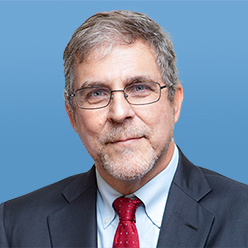In the national security section of Tuesday's State of the Union speech, President Donald Trump had a single, unifying message: The administration will confront America's international challenges with a realistic appreciation for the importance of U.S. power and leadership.
The president set the tone when he said that "weakness is the surest path to conflict, and unmatched power is the surest means to our true and great defense." In this, he echoed Ronald Reagan's "peace through strength" strategic framework that helped win the Cold War. Trump struck another Reaganesque note by calling for modernization of the U.S. nuclear arsenal to make it "so powerful that it will deter any acts of aggression by any other nation or anyone else."
Trump noted that the war on terrorism was proceeding apace, and that under his leadership coalition forces had "liberated very close to 100 percent of the territory just recently held by these killers in Iraq and in Syria." He pledged to "continue the fight until [the Islamic State group] is defeated."
There were several subtle (and not so subtle) digs at the Obama administration. Regarding the Obama "nuclear zero" concept, Trump said that perhaps denuclearization might come in a "magical moment" someday, but not now. He made a point of saying that captured terrorists were not criminals, a view the previous administration had promoted, but rather "unlawful enemy combatants." And while Barack Obama promised in his first State of the Union address that he would close the detainee facility at Guantanamo Bay, Cuba, Trump announced that he had signed an order to keep Gitmo open, and make it the prime destination for future terrorist captives.
Trump also signaled a change in policy in Afghanistan, with new (presumably less restrictive) rules of engagement, and where "our military is no longer undermined by artificial timelines, and we no longer tell our enemies our plans." He again denounced the Obama administration's "terrible nuclear deal" with Iran, and said that "when the people of Iran rose up against the crimes of their corrupt dictatorship, I did not stay silent," a clear critique of Obama's ambivalent response to the 2009 Iranian uprising.
Trump noted, to mostly Republican applause, that he had fulfilled his promise to recognize Jerusalem as the capital of Israel. And he tied the issue to a subsequent United Nations action in which countries that received more than $20 billion in U.S. aid in 2016 voted "against America's sovereign right to make this decision." He stressed that, in the future, reciprocity would be a critical factor in making judgments regarding where U.S. aid goes, and asked Congress "to pass legislation to help ensure American foreign assistance dollars always serve American interests and only go to friends of America, not enemies of America."
After a passing smack at the "communist and socialist dictatorships in Cuba and Venezuela," Trump drew special attention to the "cruel dictatorship in North Korea" and its "reckless pursuit of nuclear missiles" that "could very soon threaten our homeland." To drive the point home about the nature of the Kim regime, the president's guests at the State of the Union included North Korean dissident Ji Seong-ho and the parents of Otto Warmbier, an American student tourist who was arrested in North Korea and tortured to death. He noted that his administration is "waging a campaign of maximum pressure" to resolve the situation, and in fact the Trump White House is the first to attempt to leverage the U.S./China trade relationship against progress on the Korean peninsula.
And returning to his principal theme - also echoing the message in the Oscar-nominated Churchill biography "Darkest Hour" - the president noted that "past experience has taught us that complacency and concessions only invite aggression and provocation." He pledged to "not repeat the mistakes of past administrations that got us into this very dangerous position."
In sum, the speech was consistent with the themes that Trump laid out in his first address to a joint session of Congress back in March 2017. He continued to steer American national security policy away from the more idealistic, less robust, "lead-from-behind" Obama years, and towards an orientation rooted in the belief that global stability is, first and foremost, guaranteed by American strength and decisive leadership.
James S. Robbins is senior fellow for national security affairs at the American Foreign Policy Council.
Want these sent to your inbox?
Subscribe
